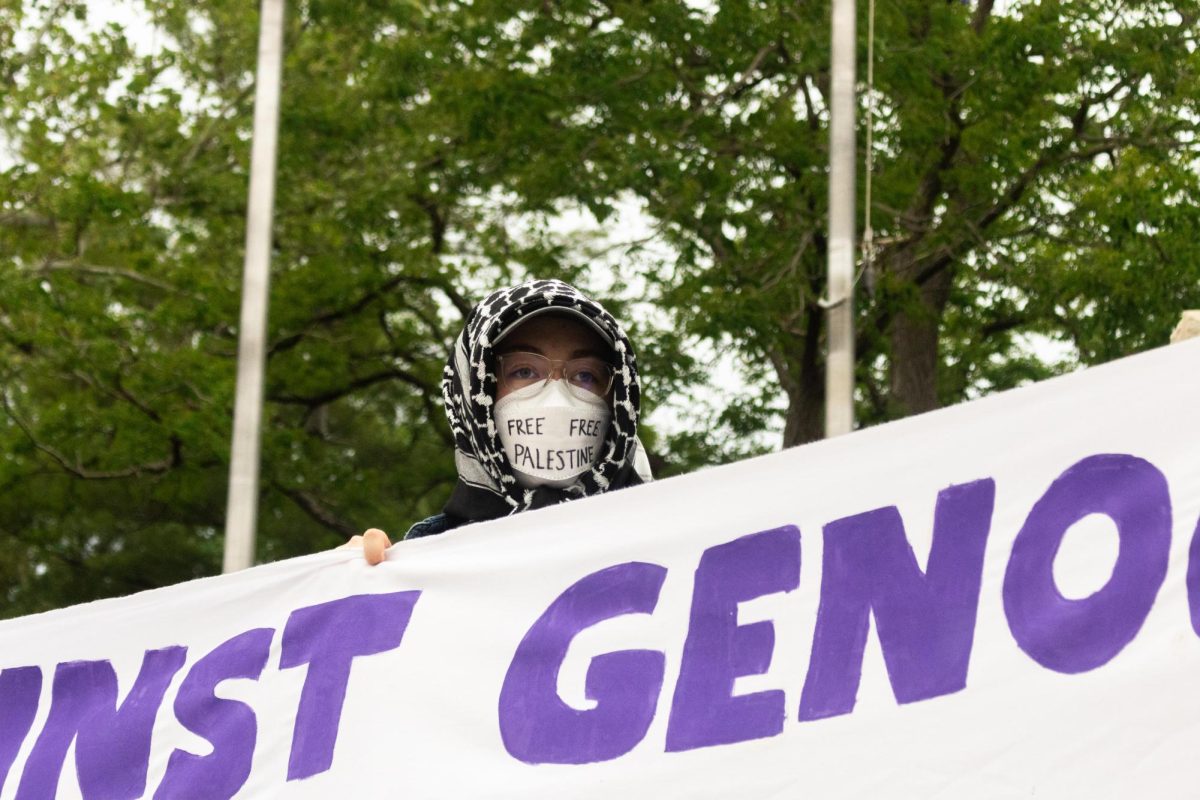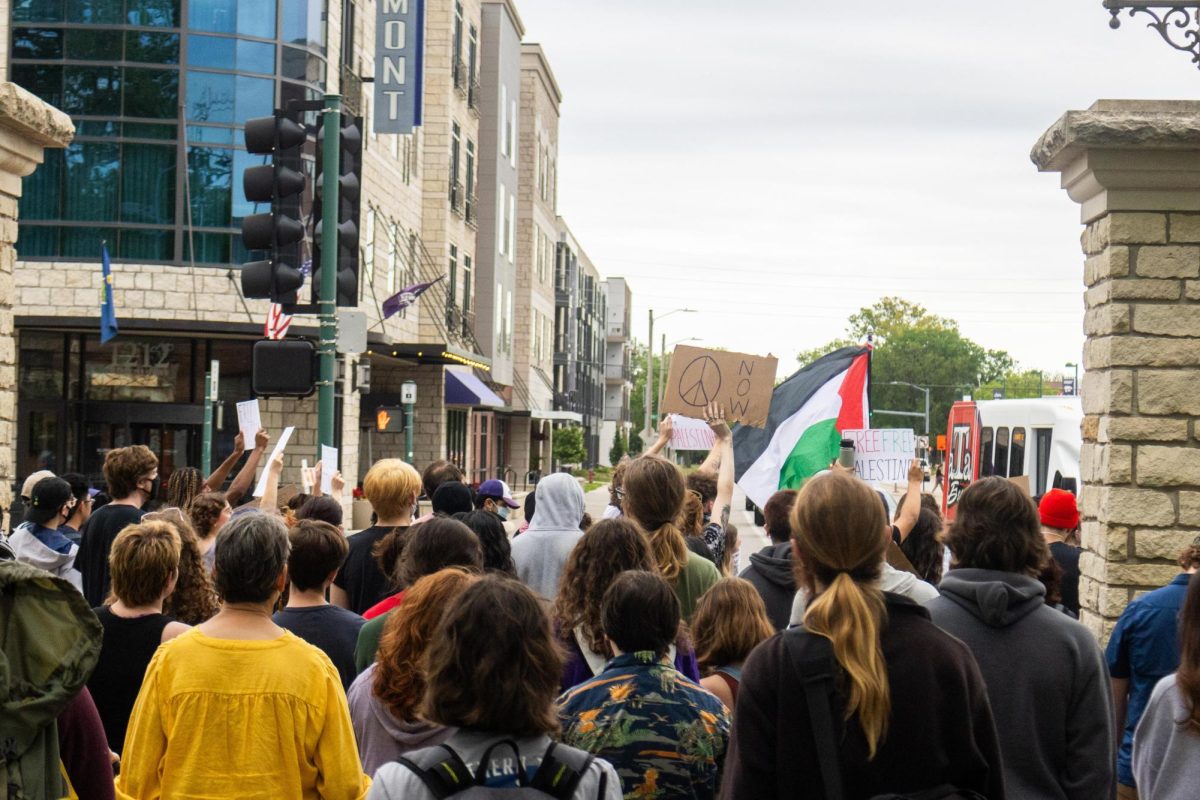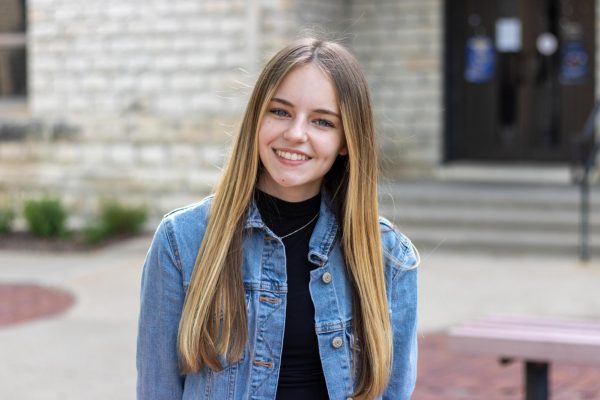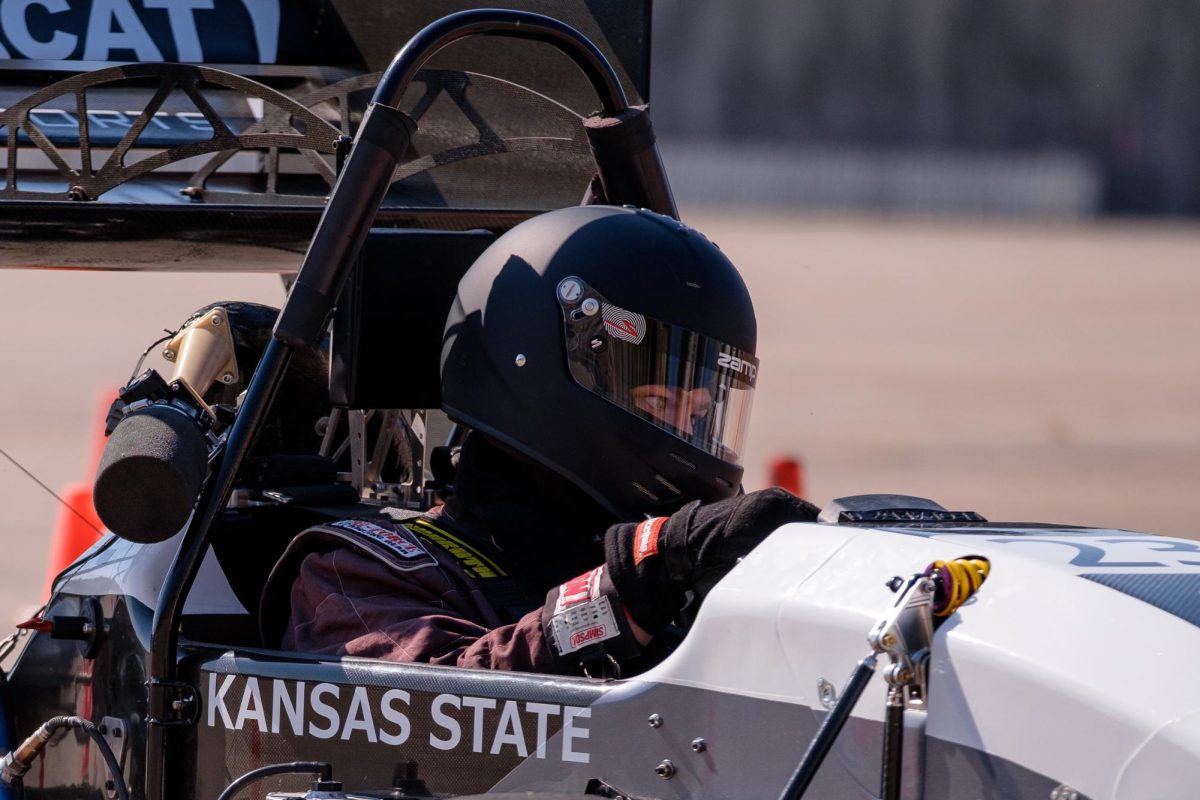Across the United States, student protests and demonstrations have erupted in support of Palestinians, demanding university divestment from Israel and its military and calling for a ceasefire in the Israel-Hamas war.
According to the Council of Foreign Relations, in Oct. 2023, Hamas fighters attacked Israel. The attack killed an estimated 1,300 Israelis, injured 3,300 and took hundreds of hostages. In retaliation, the Israeli government formally declared war against Hamas, ordering the Israel Defensive Forces to carry out a “complete siege” of Gaza.
According to the CFR, Gaza is running dangerously low on food, clean water and supplies, and has few options for safe healthcare to combat “disease spread in addition to mounting civilian casualties.”
As of May 2, The Gaza Health Ministry estimates the death toll stands just above 35,000 Palestinians and 1,100 people killed in Israel since Oct. 7.
On May 1, the Kansas State Young Democratic Socialists of America joined the nationwide movement, hosting a protest with its own demands, which were disclosed in an open letter to President Linton.
According to a media release from YDSA, “Kansas State University is complicit through its financial investments and associations which profit from the massacre of Palestinians. We will no longer tolerate this complicity.”
The YDSA wrote the letter on behalf of itself and seven other student organizations which wish to remain anonymous. According to the letter, the organization coalition represents roughly 700 students, faculty and community members.
The YDSA letter states, “Together, we are committed to ensuring that Kansas State University upholds the principles of transparency, ethical investment, and academic responsibility.”
According to the letter, the protesters advocate for the following:
- Full disclosure of K-State’s investment portfolio since 2014.
- K-State divestment from companies listed on the Boycott, Divestment, Sanctions Movement, which, according to its website, works to end international support for Israel’s oppression of Palestinians.
- An academic boycott from K-State to “sever any academic collaborations that indirectly perpetuate the oppression faced by the Palestinian people.”
- K-State President Richard Linton to step down from his position on the US-Israel Binational Agricultural Research and Development Fund, which, according to its website, is “a competitive funding program for mutually beneficial, mission-oriented, strategic and applied research of agricultural problems.”
- K-State Athletics to cut all ties with Athletes for Israel.
The protest began at 5:30 p.m. on The Quad. Demonstrations included turn-based speakers, poetry readings, chants and an open mic.
According to the media release, “We have chosen this date, May 1st, because we recognize the inextricable connections between the struggle for the liberation of Palestine and the struggle of workers and oppressed people everywhere, which May Day has historically recognized and celebrated.”
The protest marched to Anderson Hall and then in front of the Kansas State University sign at the intersection of Anderson Avenue and North Manhattan Avenue.
A small Young Americans for Freedom counterprotest, led by Thomas Adcock, president of the YAF, distantly followed the protest, carrying an Israeli flag and an American flag. For the duration of the event, the YAF counterprotest consisted of three to six members.
Thomas Lane, vice president for student life and dean of students at K-State, attended the protest unaffiliated with any stance to ensure the safety of students.
“Any time that we have an expressive activity that is over a very controversial issue, we just want to make sure that we have a safe environment for students to express their First Amendment rights,” Lane said.
Lane said knowledgeable, well-rounded dialogues are important for conversations on controversial topics.
“Certainly being on a college campus is educating yourself about issues,” Lane said. “Especially in terms of listening to each other’s voices, especially voices that you may not agree with, and engaging in civil dialogue.”
Maya Springer, senior in wildlife biology, and Lily Krowas, senior in nutrition and health, saw the protest while on campus.
“We were just going on a walk, but then we saw the protests,” Springer said. “Even if it’s just a small protest, a bunch of them in however many colleges are doing them — it is going to make a difference and make your voice heard.”
When Springer and Krowas saw the protest, they started searching the YDSA’s Instagram page to find out why it was happening before joining in.
“I didn’t know about any of that until I saw that [Letter to Linton],” Krowas said. “It’s bringing awareness, making people more aware of where funds are going, because I had no idea.”
Krowas said she was glad to see how many people attended the protest.
“It’s good to, like, prompt people to educate themselves so that way they can fully understand,” Krowas said. “I know there’s just like so much information coming at you sometimes and I know it can be overwhelming, but it’s really important that you educate yourself so that you can take an educated stance.”
Adcock said the YAF’s presence during the protest serves to promote “open dialogue.”
“We want them [the YDSA protesters] to come up and have an open dialogue with us, kind of a ‘Change My Mind’ view on it,” Adcock said.
Adcock said the YAF attempted to promote open dialogues earlier that day through an unadvertised tabling event at the Union.
“I want to open the dialogue for one, that this is not a political issue, this is not a left-right issue, this is a morality issue,” Adcock said. “Moral support is us as a nation firmly standing and saying ‘You have our support’ and ‘What do you need to receive our support?’ Do things like vigils, do things that are bringing awareness to the actual atrocities that have been done against the Jewish people, instead of condemning them, saying they’re bad.”
While Adcock said he wants to highlight violence against the Jewish community, the protest focused on condemning the Israeli military. Adcock said he couldn’t hear what the protesters were discussing at the beginning of the march.
“I wasn’t here for the full part of their thing and stuff so I can’t actually speak on that, plus I am hard-of-hearing, so I was trying to stand back and respect their thing, so I’m not sure exactly what they were saying morally,” Adcock said. “There was a [lot] of noise and I couldn’t hear what they were saying.”
Springer and Krowas said despite the YAF’s promotion of healthy civic dialogues, they’d be hesitant to approach the group.
“Sometimes they’ll say they want to have a dialogue, but in reality, they’re just looking to pick a fight or argue when that’s not necessary at all,” Springer said.
Lake Winter, K-State Alumni, attended the protest from a distance to see what students’ perspectives were and how groups interacted.
“I don’t particularly support either,” Winter said. “I wouldn’t say [my standpoint] is neutral. I think the thing that scares me the most is … the association of certain groups and certain statements and positions overlapping with others. … Overlapping anti-Israel sentiment, overlapping anti-Zionist sentiment, overlapping anti-Semitic sentiment — those terms have to be kept separate.”


























































































































William Darien • Sep 20, 2024 at 5:48 pm
I have a hard time sending my son and my money anywhere that would allow such a one sided view in favor of those who muder, rape,take hostage women and children. Then call for peace. Spoiled brat children who have no clue what the real world is like taking a stand on things they can not possibly understand. Weak minded Americans who think they are protesting for a good cause are foolish, irresponsible, and dangerous to the well being of America.
Robert Cassell • May 27, 2024 at 3:39 pm
How many protesters are actual students? As for the “demands,” you stated them, and now go back to getting your education!
A KState engineering alumnus
Harvey Masterson • May 5, 2024 at 12:43 am
Cool